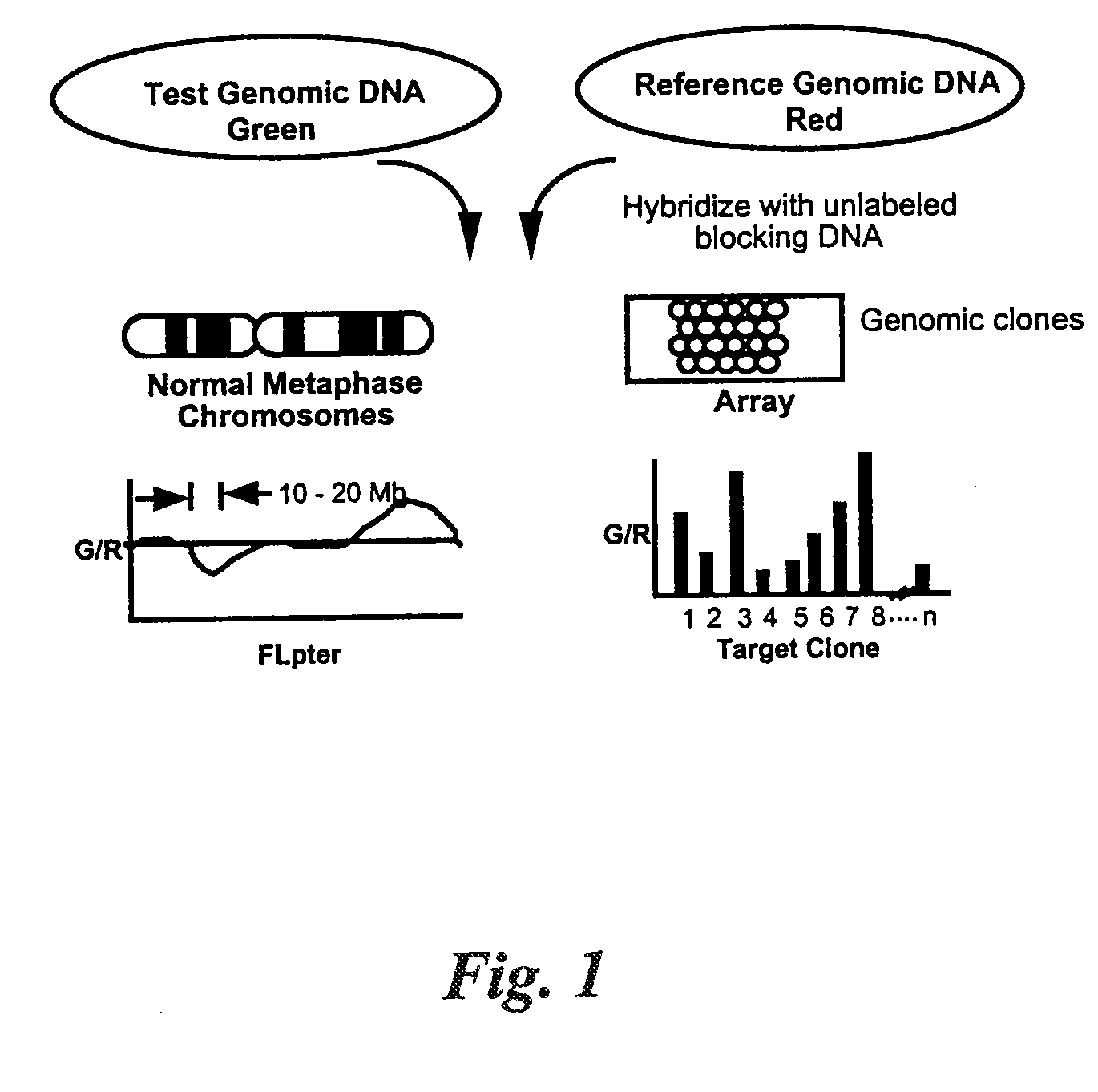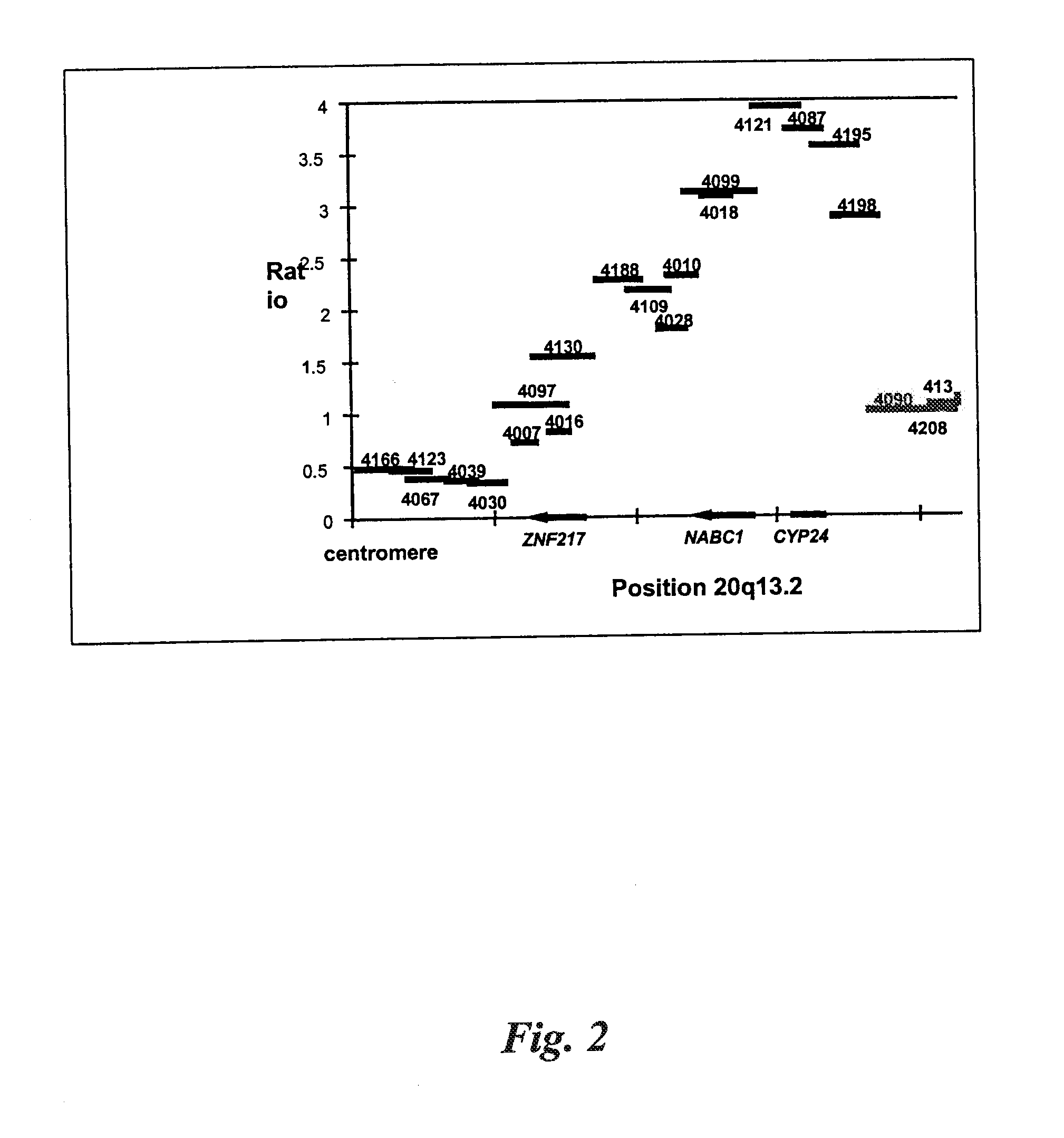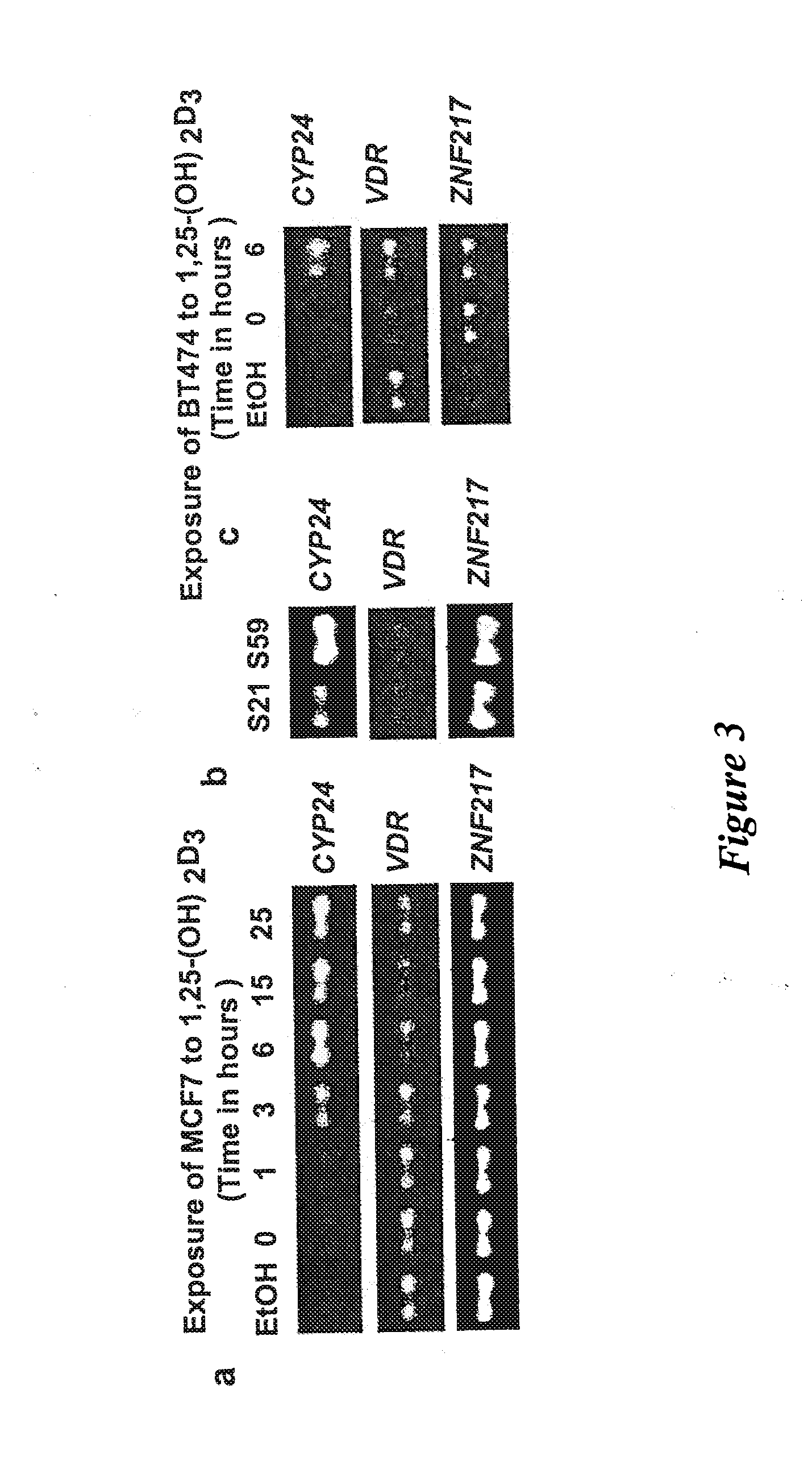Detecting cyp24 expression level as a marker for predisposition to cancer
a technology of cyp24 and expression level, applied in the field of cancer genetics and cytogenetics, can solve the problems of amplification and deletion of dna sequences that can be the cause of cancer
- Summary
- Abstract
- Description
- Claims
- Application Information
AI Technical Summary
Benefits of technology
Problems solved by technology
Method used
Image
Examples
example 1
Identification of CYP24 as a Driver Oncogene for Amplification at 20q13.2
[0233]This experiment describes genetic analysis of breast tumors that indicates selective amplification of CYP24. Selection for higher copy number of this gene during tumor evolution provides further evidence of the importance of the vitamin D pathway in tumor development in the breast.
[0234]We have used a new high resolution form of comparative genomic hybridization, array CGH, to obtain a high resolution, quantitative map of DNA copy number across a region of recurrent amplification at chromosome band 20q13.2. Array CGH, which was developed in our laboratories uses microarrays of DNA clones as the hybridization target so that its resolution is determined by the spacing of the target clones across a genomic region (FIG. 1). Thus, when contiguous clones make up the array, very high resolution copy number profiles can be obtained.
[0235]The unprecedented high dynamic range and quantitative accuracy of array CGH ...
example 2
Expression Analysis Using Multi-Color Fluorescent In Situ Hybridization (mRNA FISH) on Tissue Sections
[0237]In order to identify genes that are overexpressed in tumor compared to normal tissue, we have adapted our FISH protocols for visualizing transcription patterns in C. elegans (Albertson et al. (1995) pages 339-364 In C. elegans: Modern Biological Analysis of an Organism, vol. 48, H. F. Epstein and D. C. Shakes, eds. Academic Press, Inc.; Birchall et al. (1995) Nature Genet. 11: 314-320) for use with formalin fixed paraffin embedded clinical specimens. Our approach involves the use of fluorescently labeled riboprobes that are synthesized by in vitro transcription. The DNA template for the transcription reaction is generated by amplification using gene specific primers in which the T3 or T7 phage promoter has been incorporated in the 5′ end. Thus, subcloning of gene fragments to make probes can be avoided.
[0238]The hybridization signal was imaged with a confocal microscope, that ...
example 3
Expression of CYP24 and VDR in Normal Mammary Cells
[0239]In the human, vitamin D receptors have been localized by immunohistochemistry to the luminal and alveolar epithelial cells of the normal breast and in breast tumor cells (Berger et al. (1987) Cancer Res. 47: 6793-6799; Colston et al. (1989) Lancet, 188-191). In this experiment, the expression profiles of the CYP24 and VDR genes during various stages of murine mammary gland development and involution are determined in order to identify the cell types and developmental stages in which these gene products function. These studies will provide the description of the normal expression of these genes, which are then compared to expression in murine breast tumor models and the CYP24 transgenic mouse to be developed as described below.
[0240]The expression analysis is carried out at both the transcript and protein levels. As described above gene specific probes for CYP24 and VDR mRNAs can be used to generate riboprobes for mRNA FISH. An...
PUM
| Property | Measurement | Unit |
|---|---|---|
| Tm | aaaaa | aaaaa |
| diameter | aaaaa | aaaaa |
| sizes | aaaaa | aaaaa |
Abstract
Description
Claims
Application Information
 Login to View More
Login to View More - R&D
- Intellectual Property
- Life Sciences
- Materials
- Tech Scout
- Unparalleled Data Quality
- Higher Quality Content
- 60% Fewer Hallucinations
Browse by: Latest US Patents, China's latest patents, Technical Efficacy Thesaurus, Application Domain, Technology Topic, Popular Technical Reports.
© 2025 PatSnap. All rights reserved.Legal|Privacy policy|Modern Slavery Act Transparency Statement|Sitemap|About US| Contact US: help@patsnap.com



